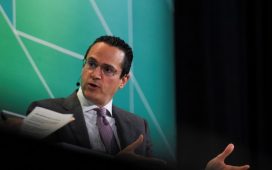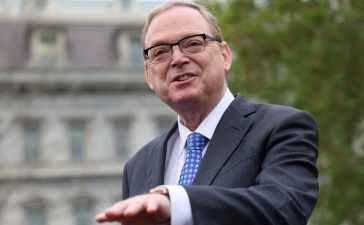Unlock the Editor’s Digest for free
Roula Khalaf, Editor of the FT, selects her favourite stories in this weekly newsletter.
Local authority pension funds managing hundreds of billions of pounds have told UK chancellor Jeremy Hunt that returns from new nuclear power plants need to be “compelling” to attract their cash.
The chancellor is looking to pension funds to help finance the government’s ambition for nuclear power to meet a quarter of the UK’s electricity needs by 2050.
Several town hall pension funds, managing more than £100bn in assets between them, were called to a meeting with Hunt this week, where the role of large retirement plans as potential investors in the Sizewell C nuclear project in Suffolk was discussed.
The head of the Sizewell C project spoke at the meeting, according to sources close to those who attended.
London CIV, which manages £17bn of pension assets for local authorities in the capital and attended the meeting, outlined the criteria needed for it to invest. “Any infrastructure solution, including nuclear power, will need to provide regulatory clarity, a solid business model and a compelling inflation-linked return stream,” said London CIV.
“This is ultimately about what our partner funds need. As they are our shareholders, we’ll collaborate with them to identify whether this area is worth exploring.”
Laura Chappell, chief executive of the Brunel Pension Partnership, which manages about £35bn in assets for eight local authority pension funds, attended the meeting and with other funds offered views to Hunt on the “problems, pitfalls and potential of investing in nuclear in the UK”.
“Any infrastructure solution, including nuclear power, will need to provide regulatory clarity,” said Chappell in a statement to the FT.
Chappell echoed that potential infrastructure projects would need to have a “solid business model, consistent policy, and a compelling investment proposition”.
The pitch to pension funds comes against a backdrop of high-profile challenges for the nuclear sector in the UK.
France’s EDF said in January that the Hinkley Point C 3.2GW nuclear plant it is building in Somerset was on course to cost up to £46bn in today’s prices and would be delayed by two more years to 2029 — compared with an initial budget of £18bn and completion by 2025.

EDF has said the Sizewell C project, which it is developing with the UK government, will be cheaper to build as lessons will have been learned and supply chains developed during the building of Hinkley.
However, in March, Ofgem, the regulator, asked energy secretary Claire Coutinho to provide certainty over costs of Sizewell C, saying its “attractiveness to potential investors” was predicated on this.
Hunt’s meeting with pension leaders came more than a year after the government flagged its intention to consult on reforms that would make nuclear a more attractive investment for UK pension funds.
However, the government is yet to consult on these reforms, which would pave the way for nuclear power to be classified as “environmentally sustainable” under the UK’s upcoming “green taxonomy”.
The Treasury declined to comment on the pension meeting, including who attended, but said: “We want to incentivise private investment in nuclear as a crucial source of reliable low-carbon energy and a driver of economic growth.
“We have already begun to engage with industry on the topic and will consult on a UK green taxonomy in due course.”
The meeting was held in the same week ministers showed signs of losing patience with pension funds over low levels of investment in domestic listed and unlisted markets.
In a speech this week, Bim Afolami, City minister, said “We have a challenge with pension funds.” He said if there was “no improvement” in levels of investment in the UK by pension funds then the government would “consider what further action can be taken”.










